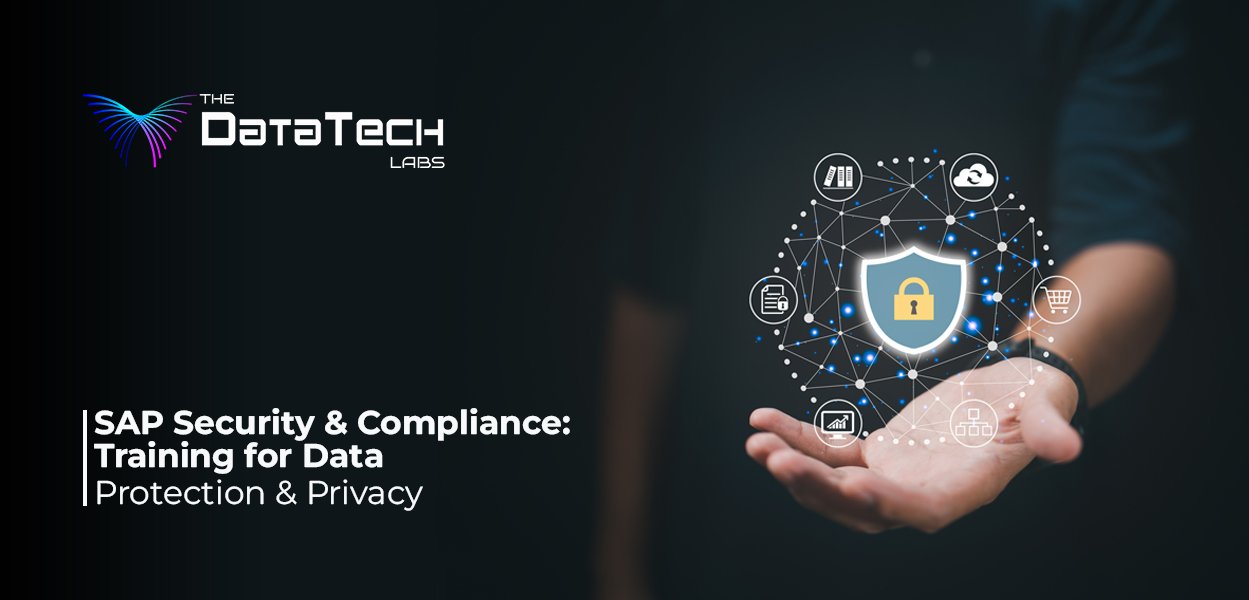SAP Security and Compliance: Training for Data Protection and Privacy
Introduction:
In today’s digital landscape, data security and compliance have become critical priorities for organizations. SAP systems house vast amounts of sensitive data, making SAP security and compliance paramount. This blog explores the emerging importance of SAP security and compliance and highlights the need for training and certification in this domain. By prioritizing data protection and privacy and investing in specialized training, SAP consultants can help organizations safeguard their valuable information, maintain regulatory compliance, and build trust with customers and stakeholders.
The Evolving Landscape of SAP Security and Compliance:
With the rise of data breaches and privacy regulations, SAP security and compliance have gained significant attention. Organizations across industries face the challenge of protecting sensitive data, ensuring confidentiality, integrity, and availability while adhering to evolving regulatory requirements such as the General Data Protection Regulation (GDPR) and the California Consumer Privacy Act (CCPA).
SAP systems house critical business data, including customer information, financial records, and proprietary data. Protecting this data from unauthorized access, internal threats, and cyberattacks is essential to prevent data breaches and mitigate potential financial and reputational risks.
In addition to data security, organizations must comply with industry-specific and regional regulations governing data privacy, such as those in the healthcare, finance, and government sectors. Failure to comply with these regulations can result in severe penalties, legal consequences, and damage to an organization’s reputation.
The Importance of SAP Security and Compliance Training:
Training and certification in SAP security and compliance are essential for SAP consultants to ensure the integrity, confidentiality, and availability of sensitive data within organizations. This specialized training equips consultants with the knowledge and skills required to implement robust security measures, establish effective access controls, and monitor and mitigate risks.
SAP security training covers topics such as user administration, authorization management, security monitoring, and vulnerability assessment. It enables consultants to implement security best practices, conduct security audits, and detect and respond to security incidents effectively.
Compliance training focuses on understanding relevant regulations, data privacy requirements, and industry-specific compliance frameworks. Consultants learn how to align SAP systems with legal and regulatory requirements, establish data protection controls, and develop strategies for compliance monitoring and reporting.
Obtaining certifications in SAP security and compliance demonstrates a consultant’s expertise and commitment to data protection and regulatory compliance. Certifications such as SAP Certified Technology Associate – SAP Authorization and Auditing for NetWeaver or SAP Certified Application Associate – SAP Data Privacy Management attest to a consultant’s proficiency in implementing and managing security and compliance measures within SAP systems.
Addressing Challenges in SAP Security and Compliance:
Implementing effective SAP security and compliance measures comes with its challenges. One key challenge is keeping up with the evolving threat landscape. Cyber threats are continuously evolving, and consultants must stay updated on the latest security vulnerabilities, attack vectors, and mitigation strategies. Continuous training and professional development are crucial to ensure consultants can adapt to emerging security threats and implement appropriate security controls.
Another challenge is balancing security with usability and productivity. While robust security measures are essential, they should not hinder system usability or impede business operations. SAP consultants must find the right balance between security requirements and the need for efficient and user-friendly systems.
Additionally, organizations must navigate complex regulatory frameworks and stay current with evolving data privacy laws. Consultants must stay informed about the latest regulations and compliance requirements, ensuring that SAP systems are configured to adhere to these regulations. This involves understanding data residency requirements, consent management, data retention policies, and other aspects of data privacy.
Conclusion:
SAP security and compliance are critical components of safeguarding sensitive data, protecting organizations from data breaches, and ensuring regulatory compliance. By investing in training and certification in SAP security and compliance, consultants can equip themselves with the necessary knowledge and skills to implement robust security measures, mitigate risks, and ensure data privacy. With heightened awareness and expertise in this domain, SAP consultants can play a vital role in helping organizations navigate the complex landscape of data protection and compliance, building trust and confidence among customers and stakeholders.

Leave a Reply